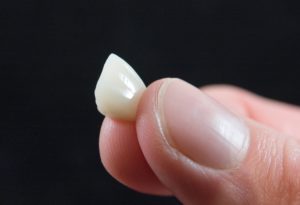Information?
 Dental crowns have held commonplace in dentistry for decades because of their versatility. They are made to provide a long-term solution, so you won’t have to worry about needing a replacement often. However, a crown won’t last forever. Although every mouth and situation differs, here’s how long you can expect your dental crown to last.
Dental crowns have held commonplace in dentistry for decades because of their versatility. They are made to provide a long-term solution, so you won’t have to worry about needing a replacement often. However, a crown won’t last forever. Although every mouth and situation differs, here’s how long you can expect your dental crown to last.
Life Expectancy of Dental Crown
A single dental crown is the most widely used restorative treatment because it can be used to improve the health, function, and appearance of a tooth. A crown can also be used along with other treatments, like after root canal therapy or to hold a bridge in place.
No matter the reason, a crown is meant to last for many years. The average lifespan of a crown is about 10 years, but it’s not uncommon for them to last for much longer. Many things will affect the life expectancy of your restoration, including:
- Materials: Crowns can be made from many materials, like silver, gold, or porcelain. Although all materials are durable, metal crowns can have a slightly longer life expectancy than those made of ceramic or porcelain.
- Location: Crowns placed on molars may need to be replaced more often than those on the front teeth because they experience more wear and tear.
- Oral Hygiene Habits: Brushing twice per day, flossing at night, and using a daily mouthwash will safeguard your restoration from preventable issues, like tooth decay.
- Diet: High sugar diets can increase the risk of decay under the crown. It’s best to limit sugary foods and drinks. Your dentist will recommend skipping anything hard or sticky. Moderate your alcohol consumption because it can weaken the bonding material holding your crown to your tooth.
- Oral Habits: Certain habits can increase your risk of damaging your crown, like chewing on your fingernails or using your teeth in place of scissors.
- Bruxism: Grinding and clenching your teeth can cause your crown to fail. Wearing a nightguard will protect it from the pressure and friction of grinding.
- Dental Care: Regular cleanings and checkups are important to keep your teeth and gums healthy. However, it also preserves your restoration and allows your dentist to check your crown at each appointment to detect anything concerning.
- Lifestyle Habits: Smoking and heavy alcohol consumption can shorten the life expectancy of a crown.
You can take many steps to ensure your crown thrives for years, but it won’t last forever. Don’t wait to contact your dentist if you notice any signs of failure, like pain, a receding gum line, or visible damage. If your crown falls off, you’ll need to see an emergency dentist to have it replaced.
About Dr. Khoa PhamDr. Pham earned his dental degree from the Baylor College of Dentistry and continued his education regularly. He strives to provide up-to-date services to help each patient achieve their best smile. If you need a dental crown, contact our office today through our website or call us at (817) 587-4520 to schedule an appointment.

